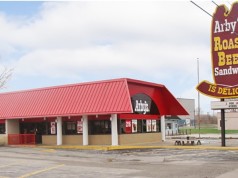Nearly 34,000 homeless Michigan residents housed in 2014
Annual report by the Michigan Interagency Council on Homelessness says Michigan is a national leader in providing solutions to end homelessness
LANSING, Mich. – April 30, 2015 – (RealEstateRama) — There were 33,896 fewer people living in shelters or on the streets in Michigan in 2014, according to an annual report released by the Michigan Interagency Council on Homelessness.
The Council, established by an Executive Order from Gov. Snyder in January, made public its annual Campaign to End Homelessness – State of Homelessness in Michigan report this week at the Building Michigan Communities Conference (BMCC). The report provides data on people who experienced homelessness in Michigan in 2014 and highlights the many strategies the Michigan State Housing Development Authority (MSHDA) and other agencies around the state are using to reach the ultimate goal of ending homelessness.
“We’ve got people focused on homelessness. That is something we can’t give up on,” Snyder said Wednesday during the closing keynote address at the BMCC. “We need to reach out and help people where they need the most help.”
According to the report, 117,808 people received care and support during a significant housing crisis in 2014. Sixty-six percent of those people were experiencing homelessness and 34 percent — 20,912 people — were at risk of becoming homeless.
“We were given options instead of deadlines,” said Sharon Bass, who lived in a homeless encampment in Grand Rapids called North Camp for three years before being transitioned to permanent housing. “They were focused on helping us, not our barriers.”
Bass participated in a homeless success stories panel during a breakout session at the BMCC. She was referring to Community Rebuilders, a nonprofit organization dedicated to ending homelessness in Kent County. MSHDA led a coordinated effort with Community Rebuilders and Norfolk Southern Railway as well as other agencies that serve the homeless, veterans, mentally ill and substance abusers to close North Camp.
“We worked with the Grand Rapids Continuum of Care and Community Rebuilders to get 10 of the 12 homeless individuals living in North Camp housed within two months,” said Kelly Rose, director of rental assistance and homeless solutions at MSHDA. “Many of these people had been living at the site for years, so it really was a testament to Community Rebuilders to get over 80 percent housed this quickly.”
“The best thing we did was to say we were going to be there for them, then stick to it,” said Anna Diaz, director of programs at Community Rebuilders.
Sticking to it has been a theme for homeless solutions in 2014. The report highlights improved outreach, citing more consistent services statewide and a focus on housing people directly off the street, sticking to the Housing First model. Housing First is an approach to ending homelessness that focuses on quickly providing homeless families and individuals with housing, then looking at what additional services they need.
“Michigan continues to be a leader in the widespread use of evidence-based practices like Housing First, permanent supportive housing and rapid rehousing,” said Beverley Ebersold, Regional coordinator for the United States Interagency Council on Homelessness, in the report. “Our progress nationally and in Michigan tells us that homelessness is a problem we can solve…and proves that Michigan is on the right track to solving it. By bringing mainstream housing, health care, employment and education resources to bear, we are changing the trajectory of homelessness in measurable ways.”
The trajectory of formerly homeless Bass has taken off in a whole new direction. Not only does she have a permanent and safe place to call home, she was recently elected to the Grand Rapids Continuum of Care Steering Council where she will provide first-hand insight to help guide the work reframing the community’s response to homelessness and ensuring more people have access to affordable, quality, permanent housing.
The Michigan State Housing Development Authority (MSHDA) provides financial and technical assistance through public and private partnerships to create and preserve decent, affordable housing for low- and moderate-income residents and to engage in community economic development activities to revitalize urban and rural communities.*
*MSHDA’s loans and operating expenses are financed through the sale of tax-exempt and taxable bonds as well as notes to private investors, not from state tax revenues. Proceeds are loaned at below-market interest rates to developers of rental housing, and help fund mortgages and home improvement loans. MSHDA also administers several federal housing programs.
For more information, visit www.michigan.gov/mshda.
Contact: Misty Elliott
Communications
517-373-1858 |




